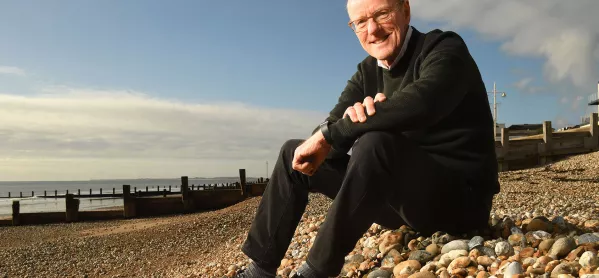Schools could use pupil premium funding to give more of their children free school meals, the schools minister has suggested.
At Education Questions in the House of Commons, Labour MP Mike Amesbury raised the case of a school in his constituency that had introduced free school meals for all pupils, adding: “Why doesn’t the minister do the same?”
Schools minister Nick Gibb responded by saying: “We’re spending £1.6 billion each year on free school meals targeted at the most disadvantaged children.
“Of course, schools are able to use their pupil premium funding, which is £2.5 billion a year to schools, if they wish to extend coverage of free school meals to more pupils.”
But a free schools meal campaigner questioned how schools could provide other additional support if they spent pupil premium funding on food.
Speaking to Tes, Andy Jolley said: “Schools have always been able to use pupil premium for almost anything but I’m not sure how he expects all the additional support is going to be paid for if pupil premium goes on school meals.”
Pupil premium cash is funding “to improve education outcomes for disadvantaged pupils”, according to the government’s own guidance.
Calls for government to extend free school meals
Guidance given to schools says it can be used for a range of activities, including academic support and teaching, but also for “wider strategies”, including “breakfast clubs and meal provision”.
Many have called for the extension of free school meals to a wider pool of pupils in recent months, including former education secretary Michael Gove.
And schools have warned that they are having to use their cash to shield children who do not qualify for free food from meal price rises.
Geoff Barton, general secretary of the Association of School and College Leaders, said: “The minister should be doing the right thing for struggling families by encouraging his colleagues in government to fund an extension of free school meals for more families who are in need.
“What he should not be doing is suggesting that schools can do the government’s job for it by using funding streams that he knows full well are already under unsustainable pressure.”
Also in Education Questions, education secretary Gillian Keegan faced questions on the government’s new plan that all students should study maths until age 18.
Shadow schools minister Stephen Morgan said: “Having dumped the Schools Bill, the only education policy this government seems to have is a gimmick announcement on making maths compulsory until 18, a plan that experts say is unachievable in light of the teacher recruitment crisis.
Ms Keegan hit back, saying: “If you look at every other developed economy, pretty much all of them, their children do maths of some form up to the age of 18 and we’re a bit of an outlier. So what we’re doing is looking to raise the expectations and standards to make sure that our children can compete and also give them skills for life, as well with financial [skills].”
Ministers also confirmed that the government’s response to the consultation on its SEND Green Paper, delayed until 2023 last year, would be released “imminently”, although stopped short of providing a date.




